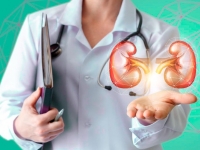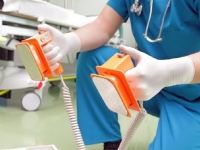What is the difference between a nephrologist and a urologist?
 What is the difference between a urologist and a nephrologist?
What is the difference between a urologist and a nephrologist?
A urologist is a doctor who treats diseases of the entire genitourinary system (kidney, bladder, urethra) with the help of, inter alia, surgical intervention. A urologist is being treated for treatment of hydronephrosis, acute urinary retention, prostate adenoma, coral-shaped pelvis stones, malignant lesions in the kidneys, bladder and prostate.
A nephrologist specializes in treating kidney disease with the help of therapeutic methods. In most cases, it treats secondary kidney damage that occurs due to various diseases. These include arterial hypertension, diabetes mellitus, heavy metal poisoning, drugs, alcohol, mushrooms. As well as the effects of glomerulonephritis, interstitial nephritis, systemic diseases such as chronic sepsis, rheumatism, vasculitis.
Under the attention of the nephrologist are the kidney tissue: interstitium (connective tissue of the kidney), pelvis, calyx, renal tubules. Some diseases are associated with the specialization of the nephrologist, but their treatment must be addressed to other specialists, including the urologist. These are diseases: tumors and large kidney stones, abnormal structure or location, and kidney tuberculosis.
The nephrologist prescribes the following tests:
a test to determine the amount of urea, phosphate, creatine, electrolytes, calcium;
biochemical analysis of blood and urine, which is needed to determine the rate of sedimentation of erythrocytes;
analysis, allowing to study the C-reactive protein.
What complaints should be made to a nephrologist?
The patient will need the help of a nephrologist if he is worried about these symptoms:
lower back pain;
no urination for 24 hours;
urine less than normal per day (500 ml);
copious excretion of urine, while it has a light pink tint;
swelling of the face, limbs, abdomen;
changes in skin color from normal to yellowish gray;
high blood pressure, which is often accompanied by hypertensive crises;
headache, lack of appetite, weakness in muscles, etc.
When is a nephrologist’s consultation necessary for a child?
Children also in certain cases require consultation and assistance from a nephrologist. Namely:
detection in the urine of blood or mucus;
the occurrence of edema, even if it is just a swelling of the eyes of a child;
the child has increased urine volume;
the urine began to smell different;
urination is accompanied by pain;
external genitals become red, etc.
Features of the nephrologist
Nephrology is a specialization that appeared not so long ago. She is considered relatively young. Therefore, a nephrologist for successful work should know about all the studies that are conducted in this area. It is important for him to study advanced technologies and conceptual theories.


